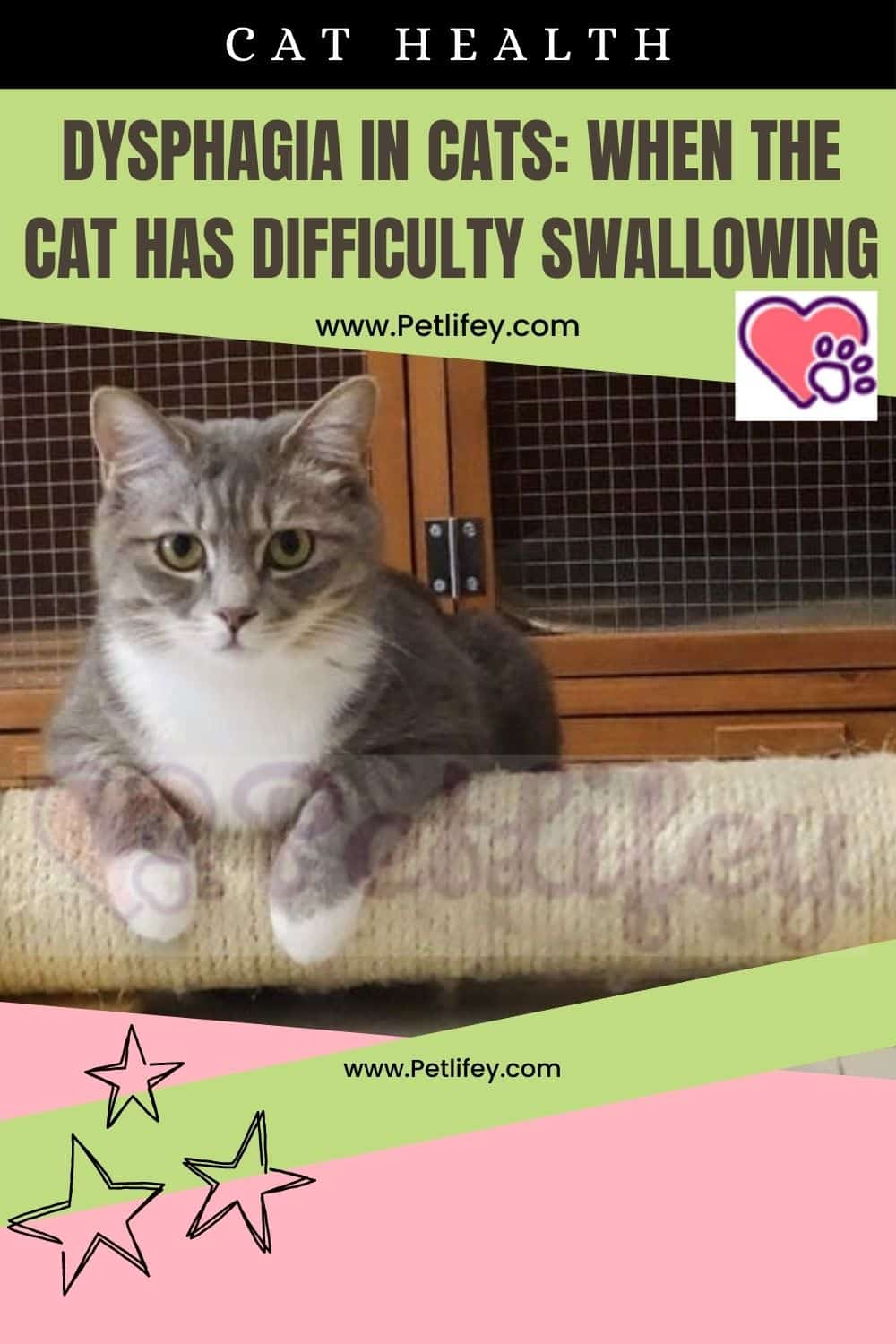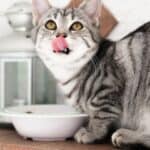Dysphagia in Cats: Understanding Feline Swallowing Disorders
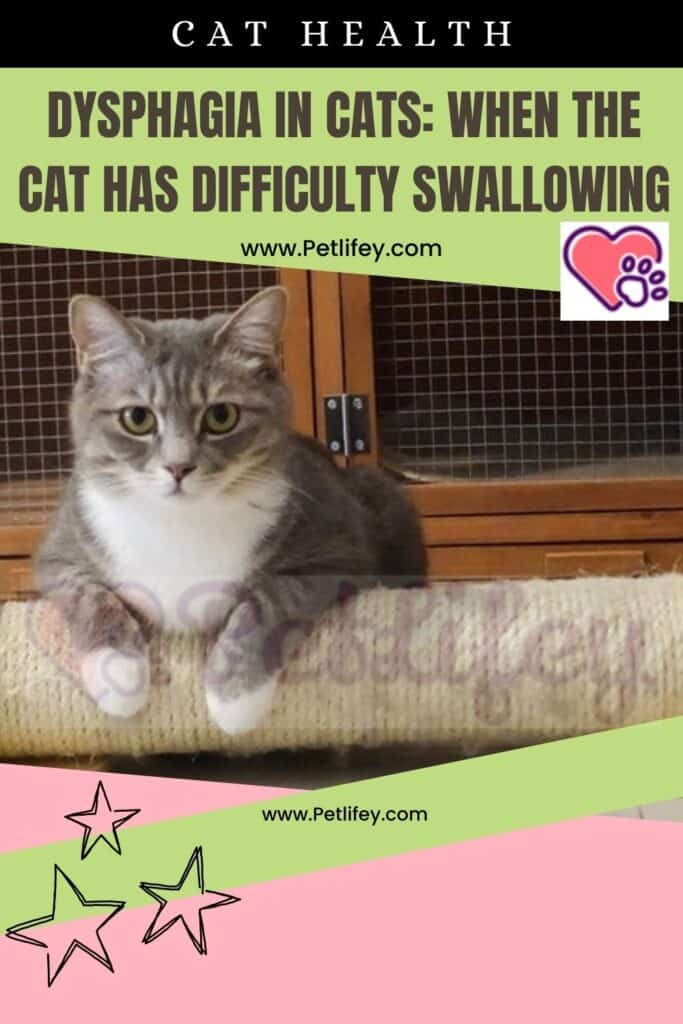
Dysphagia in cats is a condition that may be more common than you think, marked by difficulty in swallowing. When your cat struggles to eat or seems hesitant to drink, it may not simply be fussy behavior but a sign of this underlying issue. The act of swallowing is a complex process involving the mouth, pharynx, and esophagus, and problems can occur at any of these stages. Recognizing dysphagia early can be key to addressing any discomfort your cat may be experiencing and can prevent additional health complications.
If your cat is exhibiting signs such as persistent chewing, head tilting while eating, or repeated swallowing attempts, it’s possible they’re experiencing this condition. The reasons for dysphagia can vary from muscular or neurological disorders to dental issues or anatomical abnormalities. Observation of additional symptoms such as weight loss, regurgitation, or a foul odor from the mouth could warrant a more thorough investigation, often starting with a comprehensive veterinary exam and potentially followed by diagnostic tests.
Although dysphagia can be concerning, understanding the range of causes and available treatments is critical. Conditions affecting the mouth, pharynx, or esophagus can stem from infections, inflammation, injuries, and in rare cases, cancer. Depending on the identified cause, management and treatment plans can be tailored. In some instances, medication or dietary changes can provide relief, while other situations may require more intensive intervention. Your veterinarian can provide the most appropriate care options based on a careful diagnosis.
Understanding Dysphagia in Cats
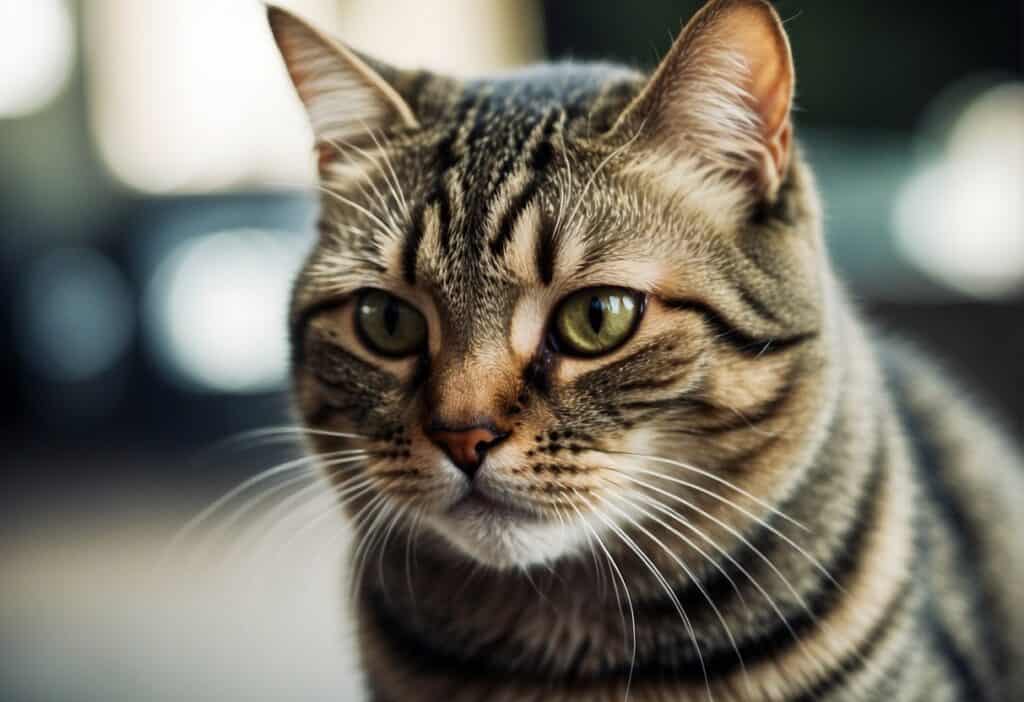
Dysphagia in cats is a condition that can affect your pet’s ability to swallow, leading to potential health issues. Recognizing the signs and understanding the varying types is essential for proper care.
Definition and Overview
Dysphagia is the medical term for difficulty swallowing. When your cat has dysphagia, it means the normal act of moving food and liquids from the mouth to the stomach is disrupted. This condition can stem from problems with the nerves or muscles responsible for swallowing. It’s important to differentiate between a temporary struggle that might occur during a single meal and recurrent dysphagia, which indicates a more serious problem requiring veterinary attention.
Types of Dysphagia
Dysphagia in cats is categorized based on where the swallowing process is affected:
- Oral Dysphagia: This occurs when the initial phase of swallowing is impaired due to issues in the mouth itself, like problems with the jaw or muscles used for chewing.
- Pharyngeal Dysphagia: When the swallowing difficulty arises in the back of the throat, or pharynx, it is termed pharyngeal dysphagia. It can be due to structural problems, muscular weakness, or coordination issues.
- Cricopharyngeal Dysphagia: This type is related to problems specifically at the juncture where the pharynx and esophagus meet. Issues here often involve the cricopharyngeal muscle, which can malfunction, causing a blockage or difficulty in passing food to the esophagus.
Causes of Feline Dysphagia
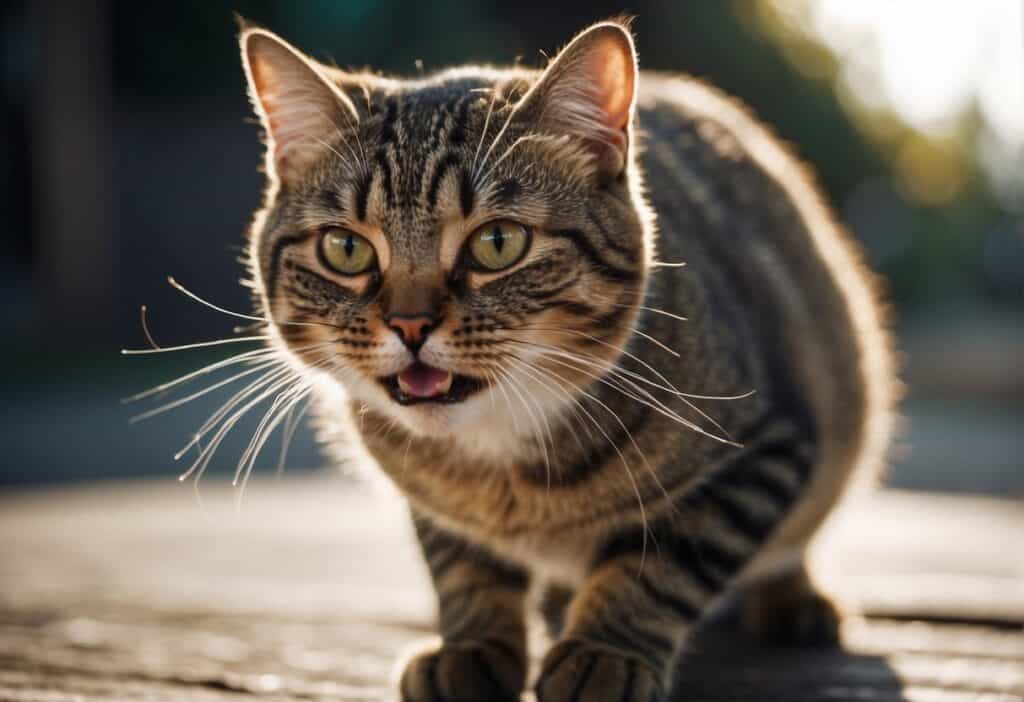
Understanding the causes of dysphagia in cats is critical for early detection and treatment. Ranging from dental issues to systemic diseases, each cause impacts your cat’s ability to swallow.
Dental and Oral Health Issues
- Dental Disease: Gum inflammation or gingivitis and infections can make chewing and swallowing painful for your cat.
- Inflammation of the Tongue or Gums: Oral inflammation can be a direct impediment to normal swallowing function.
Physical Trauma and Injuries
- Trauma/Injury: Traumatic incidents, such as fractures to the skull or jaw, can cause dysphagia.
- Paralysis of the Jaw: In cases where facial nerves are damaged, your cat might experience paralysis that hinders their swallowing.
Neurological Disorders
- Botulism/Rabies: These serious conditions can affect your cat’s neurologic system, including nerves that control swallowing.
- Trigeminal Nerve Malfunction: This specific nerve damage can lead to difficulty in chewing, which affects swallowing.
Infections and Diseases
- Abscess/Infection: Abscesses in the mouth or conditions like feline respiratory disease complex can impact swallowing.
- Stomatitis: This severe inflammation of the mouth can be extremely painful, causing difficulties in oral intake.
Gastrointestinal and Throat Conditions
- Foreign Bodies: Your cat might be unable to swallow because something is stuck in their throat.
- Cancer/Growths: Tumors or cysts in the throat can narrow the passageway, making swallowing difficult or impossible.
Systemic Diseases
- Kidney Disease: While not directly causing dysphagia, systemic diseases like kidney disease can result in overall weakness, affecting swallowing.
- Cricopharyngeal Achalasia: This condition affects the muscle at the end of the pharynx, interfering with food entry into the esophagus.
Symptoms Indicating Swallowing Difficulties in Cats
Identifying early symptoms of dysphagia in your cat is crucial for prompt treatment. Swallowing difficulties can manifest in various ways ranging from subtle behavioral changes to more immediate and distressing respiratory symptoms.
Common Signs of Dysphagia
Your cat may display several common signs that suggest an issue with swallowing. Be on the lookout for:
- Drooling: Excessive salivation may occur if your cat can’t swallow properly.
- Gagging: Watch for frequent gagging sounds or motions without producing anything.
- Regurgitation: Undigested food coming back up shortly after eating is a clear sign.
- Repeated Attempts at Swallowing: Difficulty or discomfort may cause your cat to try swallowing multiple times.
Behavioral Changes
Dysphagia can also lead to noticeable behavioral changes including:
- Loss of Appetite: Your cat might show less interest in food due to the discomfort of swallowing.
- Depression: A general decrease in activity or mood might be observed if they’re not eating well.
Respiratory Symptoms
Respiratory issues that arise from swallowing difficulties include:
- Coughing: A reaction to irritation in the throat or aspiration of food.
- Nasal Discharge: If food or liquid is regurgitated and then aspirated into the nasal passages.
Secondary Symptoms
Other secondary symptoms that accompany dysphagia are not to be overlooked:
- Weight Loss: Your cat may lose weight if there’s a persistent issue with nutrition intake.
- Swelling: Noticeable swelling around the head, neck, or jaw can be a direct cause of or a response to swallowing difficulties.
- Choking: Cats might choke on their food if they cannot swallow properly, which can be a medical emergency.
Pay attention to these signs and consult with a veterinarian if you notice any. It’s essential for your cat’s well-being to address swallowing difficulties promptly.
Diagnostic Procedures for Dysphagia in Cats
When your cat has difficulty swallowing, known as dysphagia, accurate diagnosis is crucial for effective treatment. A range of diagnostic procedures may be employed by your veterinarian to determine the underlying cause of the condition.
Initial Veterinary Examination
Your vet will start with a thorough oral examination to assess for any physical deformities, dental disease, or signs of trauma. Observation of swallowing, checking for gagging reflexes, and assessing muscle strength can provide initial clues.
Laboratory Tests
Following the physical examination, several laboratory tests including a complete blood count (CBC), biochemical profile, and urinalysis can be conducted to check for infections or systemic diseases that might be contributing to the swallowing issues.
Imaging and Specialized Tests
Advanced diagnostic tests may include:
- X-Ray: To get a better look at the structure of the throat and identify any blockages.
- Ultrasound: Provides real-time imaging to examine soft tissue structures.
- Fluoroscopic Barium Swallow: Highlights the esophageal passage in motion.
- Magnetic Resonance Imaging (MRI): Offers detailed images of the head and neck.
- Endoscopy: A small camera examines the esophageal lining and allows for tissue biopsy if needed.
Treatment Options for Dysphagia in Cats
When your cat is diagnosed with dysphagia, a prompt and appropriate treatment plan is crucial to manage the condition and ensure your pet’s well-being. The treatment approach can range from medical management to surgical interventions, depending on the underlying cause of the swallowing difficulty.
Medical Interventions
For cases of dysphagia caused by inflammation or infection, antibiotics and anti-inflammatory medications may be prescribed to tackle the root of the issue. Your vet may also recommend pain management strategies if your cat is in discomfort.
- Antibiotics: To treat underlying bacterial infections.
- Anti-Inflammatory Medications: To reduce swelling and ease discomfort.
Surgical Procedures
If your cat’s swallowing issues are the result of physical obstructions or anatomical abnormalities, surgery may be necessary.
- Removal of Foreign Objects: Objects stuck in the mouth or throat can be surgically removed.
- Masses: Surgical intervention may be needed to remove tumors or growths.
Feeding Assistance
In more severe cases, a feeding tube might be required to provide nutritional support and hydration while the cat’s ability to swallow is compromised.
- Feeding Tube: Temporary placement can ensure your cat receives adequate nutrition.
- Nutritional Support: Special diets that are easy to swallow may be introduced.
Rehabilitative Care
Your cat may benefit from therapies that enhance muscle strength and coordination, which can reduce the symptoms of dysphagia over time.
Home Care and Management
At home, you’ll need to make temporary adjustments in how your cat is fed to manage dysphagia.
- Nutrition: Offer foods that are easier to swallow, such as smooth patés or liquidized diets.
- Supportive Care: Keep your cat comfortable and reduce stress during feeding times.
Managing dysphagia in cats requires a comprehensive treatment plan tailored to the individual needs of your pet. Through a combination of medical, surgical, and supportive care, dysphagia can be effectively treated, improving your cat’s quality of life.

